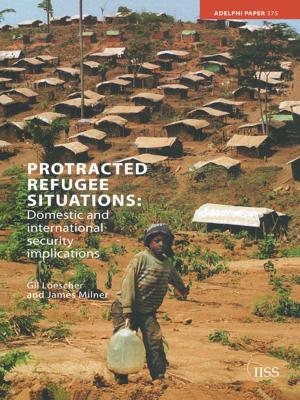Measuring Vulnerability in Developing Countries
New Analytical Approaches
Business & Finance, Economics, International Economics, Economic Conditions, Economic Development| Author: | Wim Naude, Amelia U. Santos-Paulino, Mark McGillivray | ISBN: | 9781317984504 |
| Publisher: | Taylor and Francis | Publication: | October 29, 2014 |
| Imprint: | Routledge | Language: | English |
| Author: | Wim Naude, Amelia U. Santos-Paulino, Mark McGillivray |
| ISBN: | 9781317984504 |
| Publisher: | Taylor and Francis |
| Publication: | October 29, 2014 |
| Imprint: | Routledge |
| Language: | English |
In all of the major challenges facing the world currently, whether it be climate change, terrorism and conflict, or urbanization and demographic change, no progress is possible without the alleviation of poverty. New approaches in development economics have in recent years started from the premise that we cannot successfully deal with poverty unless we also deal with vulnerability—but not only vulnerability to income poverty but also vulnerability to various others hazards—such as climate, conflict, macroeconomic shocks and natural disasters.
This book provide insights into new approaches in conceptualising and measuring vulnerability. It includes chapters dealing with advanced issues such as the compilation of economic vulnerability indices (EVIs) on a macro-level, of conceptualizing and measuring local vulnerability across regions in a country, and of measuring the flip-side of vulnerability, namely resilience. The book also explores the sensitivities of the various measurements of vulnerability to vulnerability lines, poverty lines, and permanent income, with consideration to some of the most vulnerable groups in developing countries. Overall, the contributions in the book consolidate new approaches as far as the concept and measurement of vulnerability on different levels and outcomes are concerned, and note directions for future research.
This book was published as a special issue of Oxford Development Studies.
In all of the major challenges facing the world currently, whether it be climate change, terrorism and conflict, or urbanization and demographic change, no progress is possible without the alleviation of poverty. New approaches in development economics have in recent years started from the premise that we cannot successfully deal with poverty unless we also deal with vulnerability—but not only vulnerability to income poverty but also vulnerability to various others hazards—such as climate, conflict, macroeconomic shocks and natural disasters.
This book provide insights into new approaches in conceptualising and measuring vulnerability. It includes chapters dealing with advanced issues such as the compilation of economic vulnerability indices (EVIs) on a macro-level, of conceptualizing and measuring local vulnerability across regions in a country, and of measuring the flip-side of vulnerability, namely resilience. The book also explores the sensitivities of the various measurements of vulnerability to vulnerability lines, poverty lines, and permanent income, with consideration to some of the most vulnerable groups in developing countries. Overall, the contributions in the book consolidate new approaches as far as the concept and measurement of vulnerability on different levels and outcomes are concerned, and note directions for future research.
This book was published as a special issue of Oxford Development Studies.















